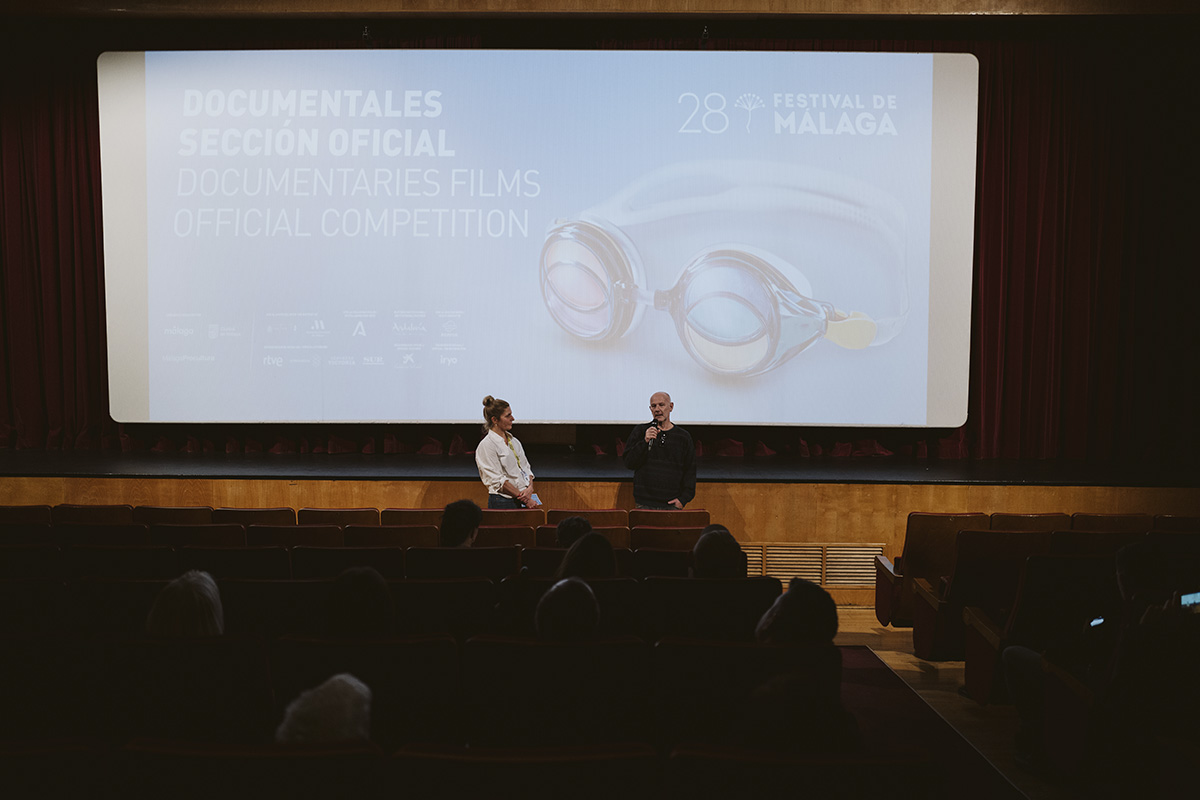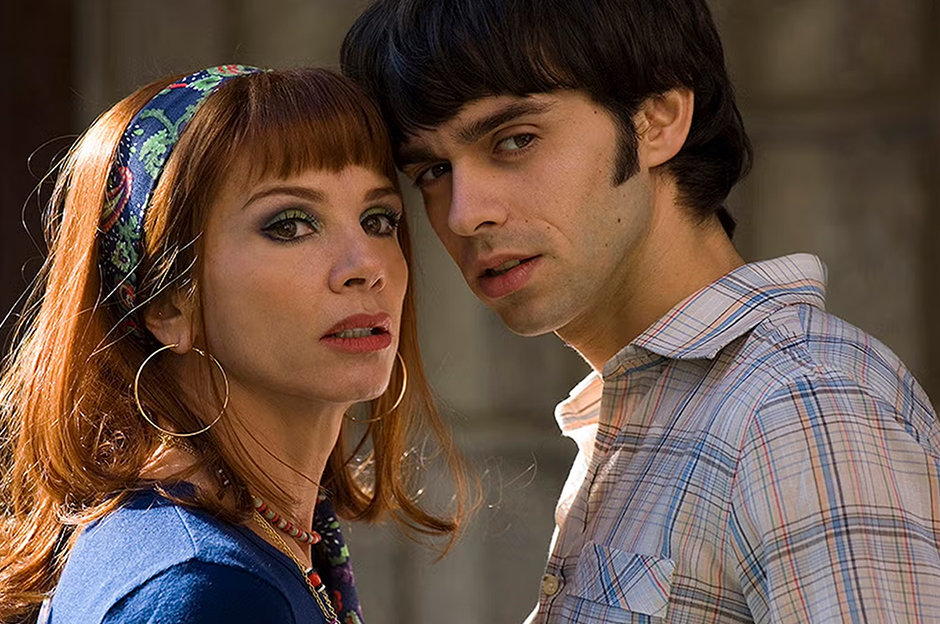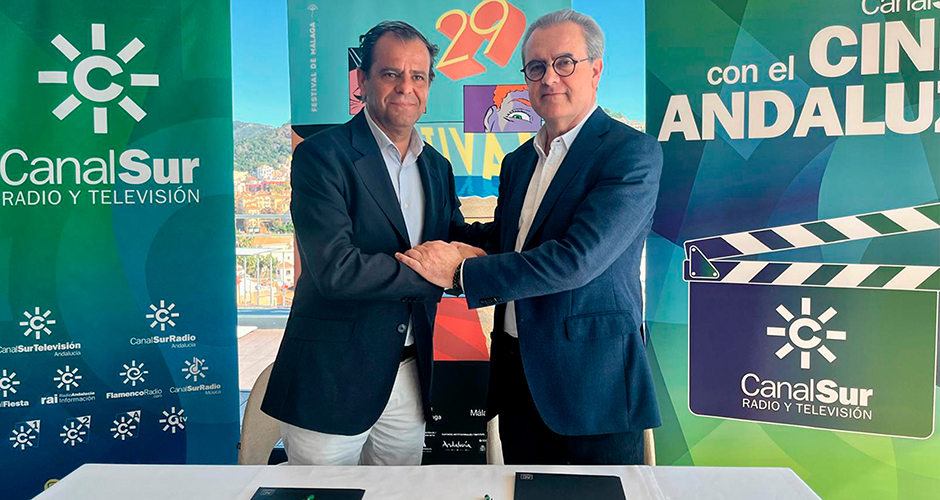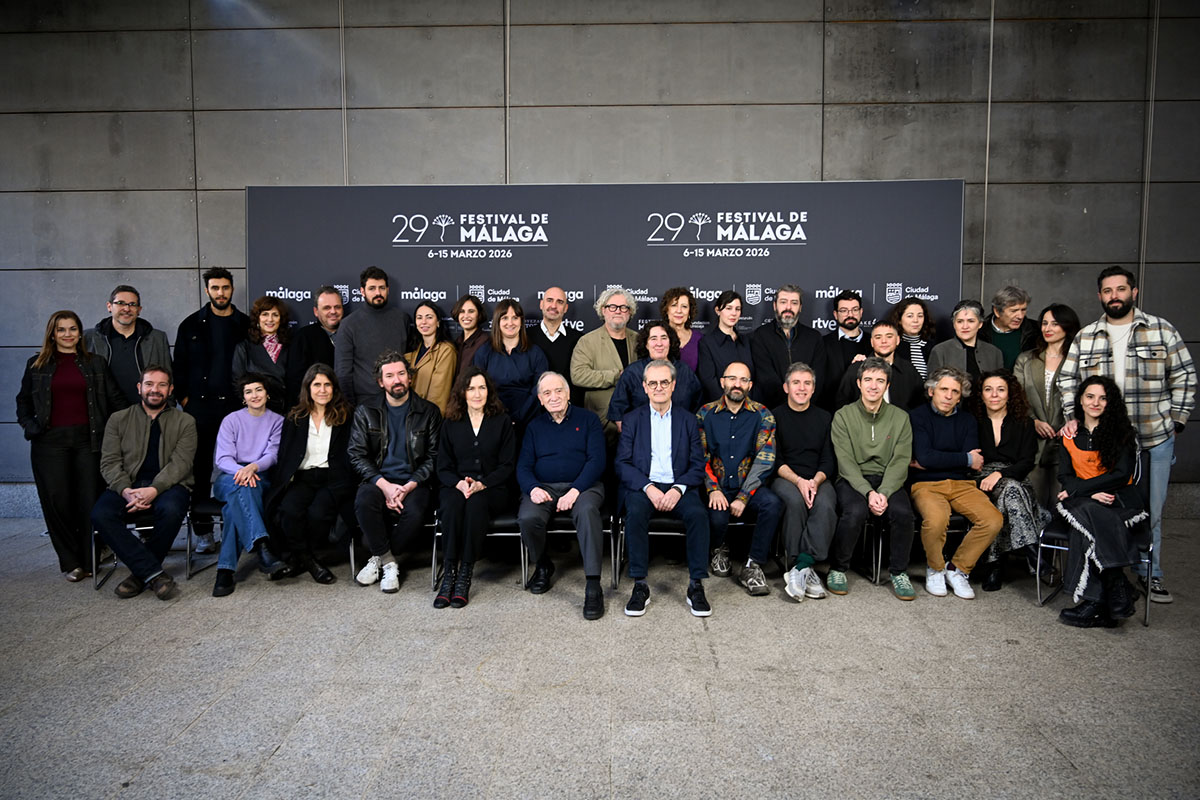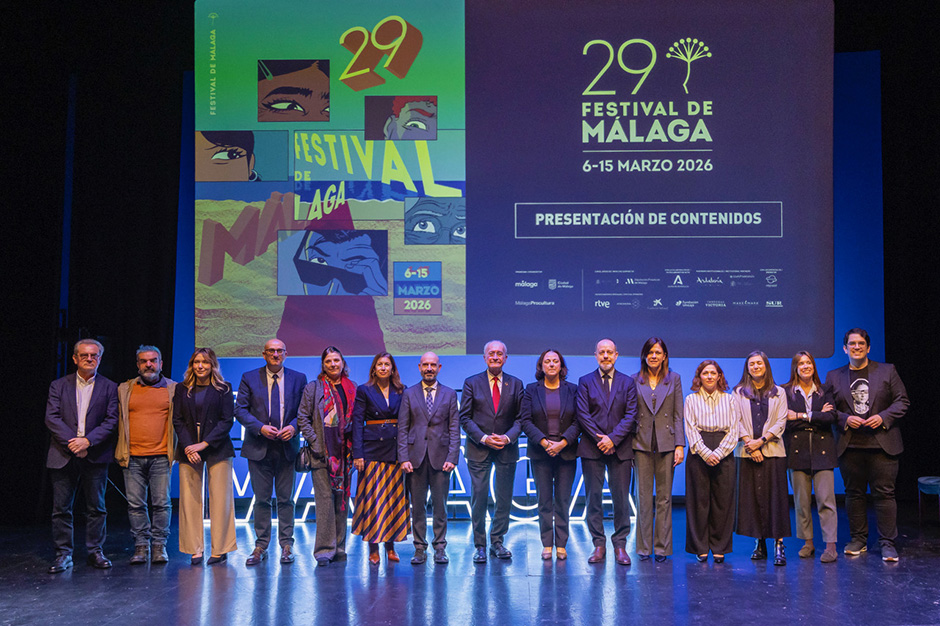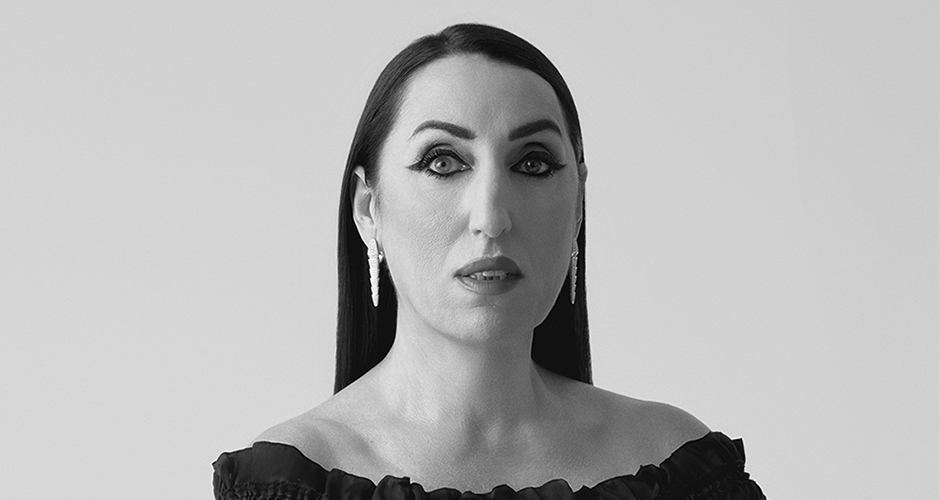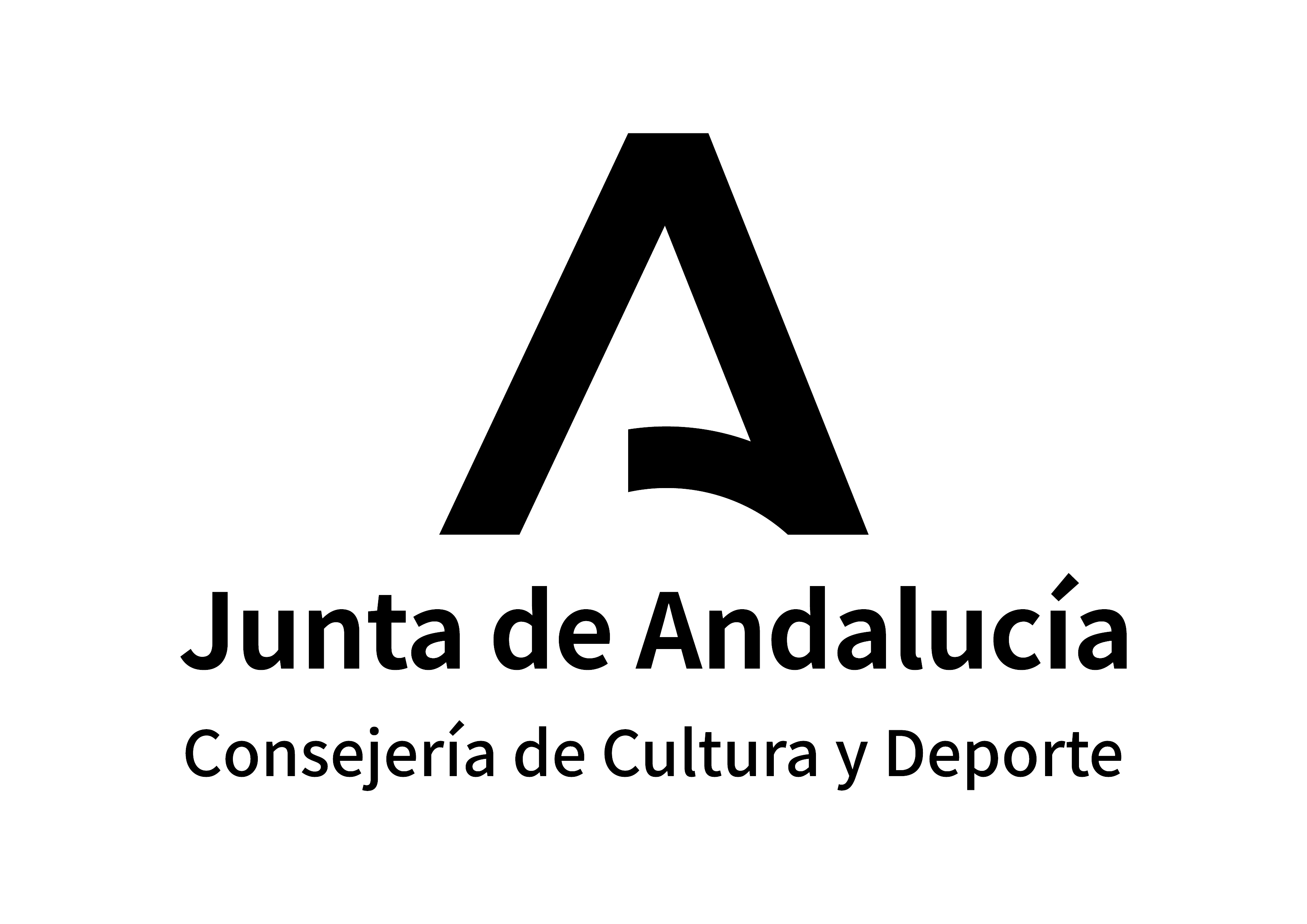Powerful stories feature on the fourth day of the Festival de Málaga's Documentary Section
The María Victoria Atencia Cultural Centre hosted the screening of films from Argentina, Brazil, Peru and a Turkish-American co-production
On Monday 17 March, the Festival de Málaga hosted the screening of four documentaries in the Official Competition Section. Screened at the María Victoria Atencia Cultural Centre, the films address issues such as forced disappearance, labour and violence.
Texas, Turkey': When cinema is made with artificial intelligence
‘Texas, Turkey' is the first documentary made entirely in AI to compete in the Documentaries Official Competition at the Festival de Málaga. Directed by Tin Dirdamal, it portrays an invisible connection that arises from the desire to bring together, through a thread, all that is considered sacred between a field in eastern Turkey where harvested wheat grows and a border town in Rio Grande City, Texas, where a man enters a supermarket with a gun.
A self-taught filmmaker and accidental artist who studied engineering, Tin Dirdamal was born 165 kilometres south of the US-Mexico border. Also self-taught in psychology and architecture, his most useful tools are doubt and contradiction.
‘¡Obreros!: The other face of workers
Perhaps displaced today by the figure of the marginalised person or the immigrant, workers have been filmed by cinema mostly in the light of conflicts or as the left behind, victims of progress and globalisation. But apart from the demands, who are these workers today? What has become of their lives? What has become of their dreams and imaginations? These are some of the questions raised by Argentinian filmmaker Cristian Pauls in his documentary 'Obreros!', presented for the first time outside Argentina.
"The world of work interests me. Its precariousness, its demands... I believe in the distribution of working hours as a way to curb unemployment", commented the filmmaker. Without knowing most of his interviewees in the documentary beforehand, Cristian Pauls explained that for him it was not only important to show interesting lives, but also that the participants knew how to relate their lives. "To me, it's not only the story that matters but also the body, the voice... Bodies speak", he added.
´Ojalá pudiera decir la verdad´: Martyrs or victims
Taking his own memories as a starting point, Peruvian director Víctor Augusto Mendívil makes this short documentary by collecting multiple records related to a painful family tragedy, the disappearance of his uncle, journalist Jorge Luis Mendívil, while he was reporting on the armed conflict in his country. Diving into the world of journalism, Victor goes in search of answers to what really happened on 26 January 1983.
‘Ojalá pudiera decir la verdad’ offers a personal insight into resistance and combative journalism in the 1980s while denouncing the lack of justice for these unsolved crimes.
‘Paradeiros': The anguish of unsolved disappearances
The harrowing reality of forced disappearances in Rio de Janeiro is the focus of the documentary 'Paradeiros', directed by Brazilian filmmaker Rita Piffer. With a script by Sara Stopazzolli, the film features testimonies of people who live with the anguish of not finding the bodies of dead relatives.
As in the case of Leandro, who disappears after a football match in his own neighbourhood, an area controlled by the militia, an armed group responsible for the execution of twenty young men. Under threat of violence, Sandra, Leandro's mother, sets out to find her son's body in order to give him a dignified burial.
"The people we interviewed really wanted to talk ... out of desperation. We had to be very careful because it is very difficult to film in militia-controlled areas. At the beginning of the project I don't think we were aware of the danger. Perhaps we were a bit too naive", the filmmaker confessed; and she recalled the Brazilian cinema’s recent achievement 'Ainda estou aquí', which won the Academy Award for Best International Feature at the Oscars 2025, which also deals with the forced disappearances during the Brazilian dictatorship. "This is still going on now and we need to talk more about it in the media. These are not isolated cases. It is a structural situation,” she lamented.
Share








